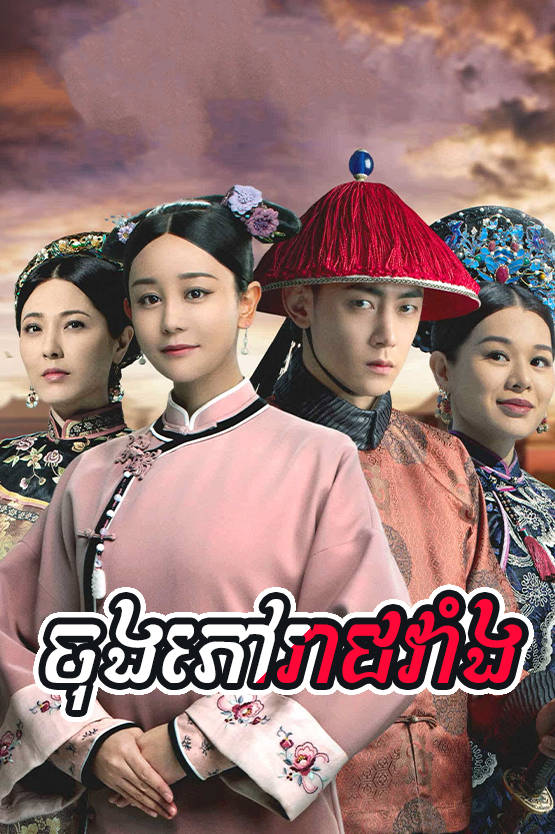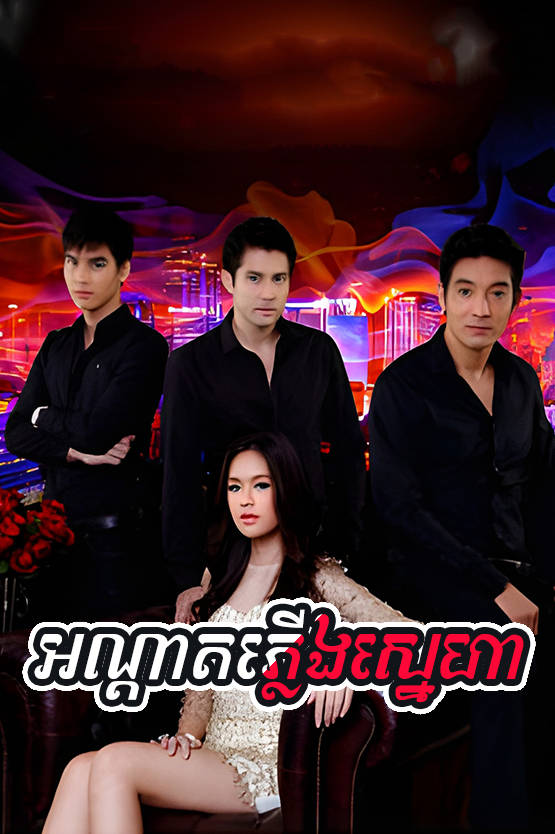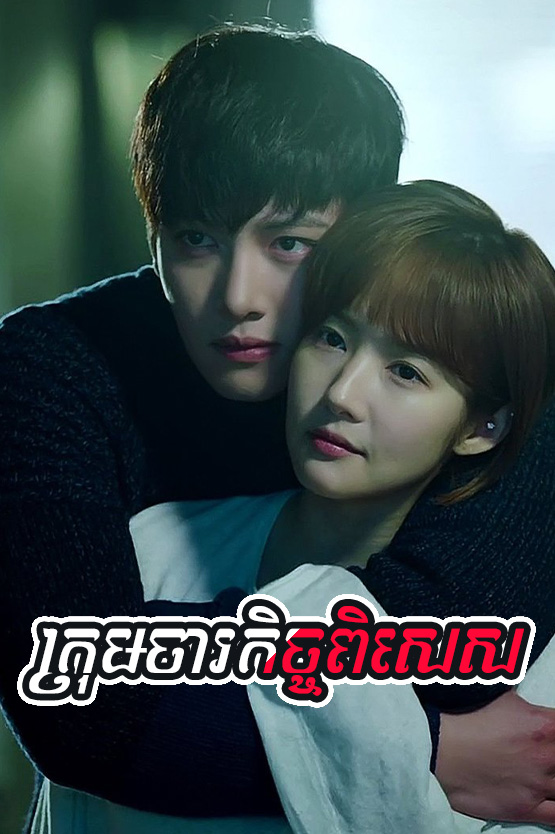
Chong Phov Reach Vang
The Last Cook: A Gentle Look into Tradition, Food, and Resilience
Chinese dramas often have a unique way of weaving together history, emotion, and culture, creating stories that are not only entertaining but also deeply thought-provoking. The Last Cook is one such drama that gracefully balances storytelling with cultural heritage, focusing on themes of tradition, resilience, and the healing power of food. Instead of relying heavily on fast-paced action or exaggerated emotions, this drama invites its viewers into a calm and reflective space—where the aroma of food, the dedication of a cook, and the endurance of the human spirit take center stage.

A Story Rooted in Food and History
At its heart, The Last Cook is about much more than culinary art. Set against the backdrop of history, the drama tells the story of a young woman, Yao Zijin, who becomes a palace maid in the Qing dynasty. Unlike many dramas that focus purely on palace intrigue, power struggles, or romance, this series takes a refreshing turn by exploring the world of food within the royal court.
Zijin, through her humble yet determined personality, begins her journey in the imperial kitchens. She works hard to perfect her skills, not simply to survive but to preserve the spirit of cooking itself. Her dishes are not just meals—they are expressions of culture, love, and resilience. In a time when political turbulence and personal hardships could easily overshadow everything else, food becomes a symbol of stability and hope.
This perspective makes the drama feel almost meditative. Every dish prepared on screen seems to carry layers of meaning, reminding viewers that food is not merely nourishment for the body but also comfort for the soul.
A Calm Exploration of Resilience
One of the most striking aspects of The Last Cook is how it portrays resilience through quiet determination rather than dramatic outbursts. Zijin does not have grand ambitions of conquering the palace or rising to supreme power. Instead, she wishes to master her craft and live with dignity in an environment that is often unforgiving.
The calm and steady pacing of the drama mirrors her attitude. There is hardship, of course, but the story unfolds in a way that emphasizes inner strength rather than chaos. Each challenge faced by the characters becomes a lesson in patience, humility, and endurance. This makes the viewing experience surprisingly soothing, even when the narrative touches on moments of tension.
Through Zijin’s journey, we are reminded of the quiet power of persistence. Her resilience is not loud, but it is unbreakable.
The Significance of Food as Storytelling
Food plays a central role in The Last Cook. The drama uses cuisine not only as a cultural backdrop but also as a storytelling tool. Each dish has a story, often reflecting emotions, traditions, and human connections. Whether it is a simple bowl of porridge shared in difficult times or an elaborate dish served in the palace, food symbolizes communication, compassion, and memory.
The cinematography enhances this by carefully capturing the preparation of each meal. The gentle slicing of vegetables, the careful seasoning, and the delicate plating of dishes are all shown with respect and detail. These moments slow down the narrative, allowing viewers to savor the process rather than rush through it. It almost feels like a visual meditation on the art of cooking.
This emphasis on food also connects the drama to Chinese cultural heritage. Recipes passed down through generations reflect not only tastes but also wisdom, history, and identity. In that sense, the act of cooking becomes a way of preserving what might otherwise be lost.
A Gentle Romance Interwoven
Although food and resilience form the backbone of The Last Cook, there is also a gentle romantic thread woven into the narrative. The romance does not dominate the story, but instead complements it, much like a subtle seasoning that enhances a dish without overpowering it.
The relationship between Zijin and her counterpart develops slowly, marked by mutual respect and understanding. There is no rush, no unnecessary intensity—just a natural unfolding of emotions. This calm approach to romance feels refreshing in a genre where love stories are often heightened with conflict or melodrama. Instead, what we see here is trust, companionship, and quiet support.
The romance, like the cooking, is portrayed as something that requires patience and care. It grows gradually, reminding us that some of the most meaningful bonds in life are built on steady foundations rather than fleeting passion.
The Atmosphere and Visuals
Another aspect that makes The Last Cook stand out is its atmosphere. The sets, costumes, and cinematography all contribute to a sense of calm immersion. The palace is depicted with elegance but not excess, allowing viewers to focus on the human stories within its walls.
The use of warm lighting, natural colors, and soft camera movements creates a visual harmony that complements the story’s tone. Even during moments of struggle, the visuals never feel overwhelming or chaotic. Instead, they reflect the drama’s central theme: finding balance and strength in a changing world.
Lessons from The Last Cook
What makes The Last Cook meaningful is not just its narrative, but also the quiet lessons it imparts. Through Zijin’s story, viewers are invited to reflect on several themes:
-
Resilience in Adversity: Strength does not always need to be loud or aggressive. Sometimes, it is found in small acts of persistence and dedication.
-
The Power of Food: Cooking and sharing meals can be a profound way of connecting with others and preserving culture.
-
Patience and Growth: Just as a dish requires time to develop its full flavor, so do personal growth and relationships.
-
Respect for Tradition: In a fast-changing world, honoring traditions can provide a sense of identity and grounding.
These lessons resonate far beyond the screen, making the drama not only enjoyable but also inspiring in a subtle way.
A Drama to Savor
The Last Cook is not a drama to be rushed through. Much like a carefully prepared meal, it is best savored slowly, with attention to detail and appreciation for its subtleties. For viewers who enjoy fast-paced action or intense suspense, it might feel quiet. But for those seeking a calming, thoughtful story with cultural depth, it offers something truly special.
In many ways, this drama feels like comfort food for the soul. It soothes rather than excites, and it nourishes with its gentle storytelling and heartfelt performances.
Final Thoughts
In the vast world of Chinese dramas, The Last Cook shines as a piece that emphasizes calmness, tradition, and resilience. Its focus on food as both art and metaphor brings a refreshing perspective, while its portrayal of patience and determination leaves a lasting impression.
Watching this drama is like sitting down to a warm meal after a long day—it does not overwhelm you, but it fills you with quiet comfort. In its calm and thoughtful way, The Last Cook reminds us of the value of resilience, the beauty of tradition, and the healing power of food and human connection.













